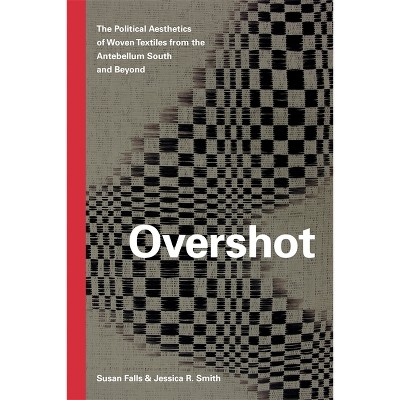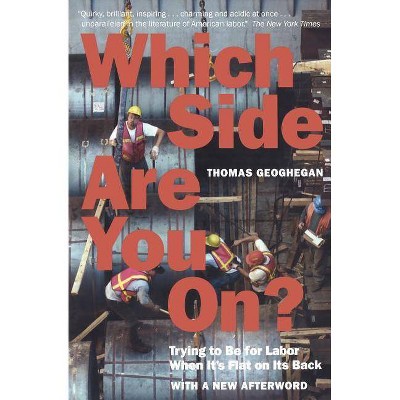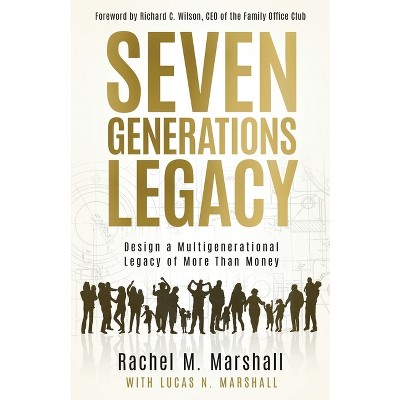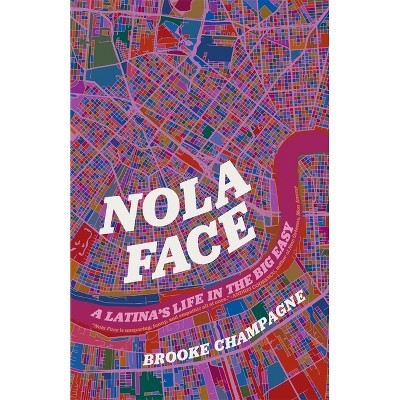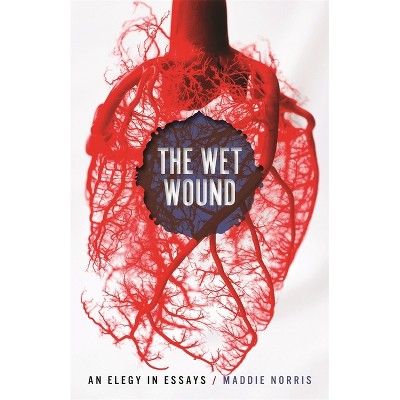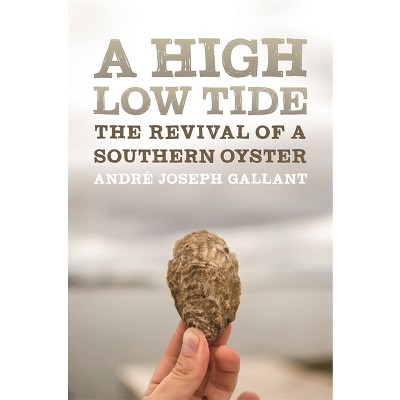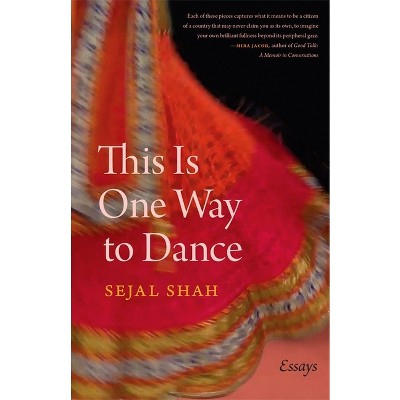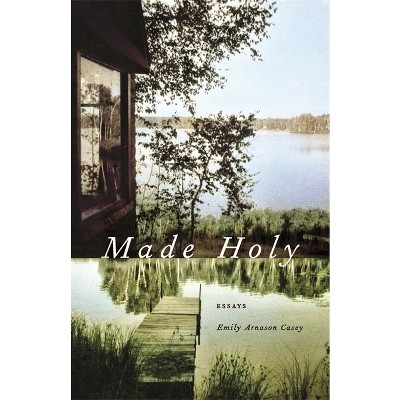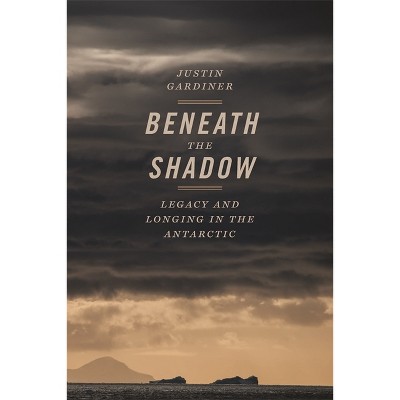Sponsored

The Exit Is the Entrance - (Crux: The Georgia Literary Nonfiction) by Lydia Paar (Paperback)
In Stock
Sponsored
About this item
Highlights
- Lydia Paar joined the American workforce at age fourteen, holding a wide variety of jobs (twenty-seven, at last count) between then and now, across twenty-five different homes in eight states.
- About the Author: LYDIA PAAR is an essayist and fiction writer.
- 217 Pages
- Biography + Autobiography, Personal Memoirs
- Series Name: Crux: The Georgia Literary Nonfiction
Description
About the Book
"Lydia Paar joined the American workforce at age 14, holding a wide variety of jobs (27, at last count) between then and now, across 25 different homes in eight states. The essays in this collection explore her attempts to evade or transform the lower-middle class American experience across various cityscapes, towns, deserts and in-between places (jails, cross-country bus rides, and U.S. army basic training). Each essay interrogates the interior emotional work that accompanies such grappling: labors of love and friendship, of learning, motion, maintenance and of finding faith in potential for positive change. Across a range of interior and exterior landscapes, Paar meditates on subcultures, agendas, violences, alliances, and on the natural world our human endeavors intersect: on how what we try to transform so often transforms us"--Book Synopsis
Lydia Paar joined the American workforce at age fourteen, holding a wide variety of jobs (twenty-seven, at last count) between then and now, across twenty-five different homes in eight states. The essays in this collection explore her attempts to evade or transform the lower-middle class American experience across various cityscapes, towns, deserts, and in-between places. As she moves through these spaces, she seeks peace, connection, and freedom: from the hip streets of Portland to desolate deserts, Army basic training to cross-country bus trips, to eerie St. Louis funeral homes, and more.
Each essay interrogates the interior emotional work that accompanies such grappling: labors of love and friendship, of learning, of motion, of maintenance, and of finding faith in potential for positive change. Across a range of interior and exterior landscapes, Paar meditates on subcultures, agendas, violences, alliances, and the intersection of the natural world with our human endeavors. Ultimately, she considers how what we try to transform so often transforms us.Review Quotes
The Exit is the Entrance is a collection of essays on leaving--going to as well as away from--college, the military, relationships, wrong decisions. It is a series of ruminative journeys written in first, second, and third person long-form essays, in which Paar explores creativity, erasure, our connection to the earth and each other in lyrical prose... Throughout this collection, Paar, while in a perpetual journey towards and away from situations, places, and people, finds herself drawn to the universal experience.--Lara Lillibridge "River Teeth: A Journal of Nonfiction Narrative"
The Exit Is the Entrance has it all: well-crafted memories of coming of age in late 1990s Portland, framed by the most popular flicks of the time, violence lurking at every turn, an essay about going AWOL from the US military at age nineteen with four fractured bones after a summer of 'smoke sessions' for minor infractions at basic training, and a piece about working a demoralizing job at a magnet factory. It has a robot named Carey, (a piece of artificial intelligence that Paar is training in St. Louis, Missouri, which happens to be the murder capital of the nation), and it also has the desert: the vastness of it, first, Phoenix, 'its luminescent pink streetlights pearling in small globes on the surfaces of silver skyscrapers in the plane-streaked night sky, ' and then, Prescott, where Paar's life unfolds more slowly: clunky, nighttime bike rides and flocks of crows. Paar writes about the spaciousness of the desert, the 'whispery cicada pulse of summer neighborhood streets lazy with heat' that kept her 'ear to the dirt.' The prose itself is complex and crystalline, but most importantly, The Exit Is the Entrance has the benefit of an extremely clear-sighted narrator to guide us through this collection with equal parts self-interrogation and softness. As Paar examines what it means to leave, to find a way a forward--no matter the complicated web of circumstances--she gives us permission to do the same, and to parse out possibilities for the future.--Gabe Montesanti "author of Brace for Impact: A Memoir"
Paar is a wanderer, seeker, and unflinching guide through a series of dynamic endings and beginnings that finally lead to a sense of home. As dynamic as the subjects they broach, these essays are razor-sharp--as attuned to life's sobering realities as to its unexpected sources of light. In partaking of Paar's collection, we're reminded of the hard and beautiful necessity of finding our way to what is ours and leaving what is not.
An incisive and insightful debut; stunning in its depth and scope.
Paar grounds her essays in place and embodied experience, varying voice to match content so as to provide a fresh and interesting perspective on threads touched upon in multiple essays in the collection. She reframes a number of familiar issues--work, desire, relationships, privilege, and lack thereof, in particular--in new and insightful ways.--Sarah Einstein "author of Mot: A Memoir"
Through rich and beautifully textured language, Paar's The Exit Is the Entrance pulls you into tough jobs, tough armies, tough relationships, and tough cities that are infinitely fascinating but as hard to escape as deep space. Fortunately, through her knife-sharp humor, her clear-eyed perspective, and deep intelligence, Paar breaks us open, breaks us out into easy light.--Nicole Walker "author of Processed Meats: Essays on Food, Flesh, and Navigating Disaster"
A necessary book for the moment as well as a pleasure to read and enjoy as an example of fine writing. It is a document that documents and a moving sculptural artwork that moves and moves on the subject of ceaseless motion. This reads as a new memoir of the age.--Michael Martone "author of Table Talk and Second Thoughts: A Memoir in Prose Poems"
About the Author
LYDIA PAAR is an essayist and fiction writer. An MFA recipient from Washington University and an MA recipient from Northern Arizona University, she lives in Tucson and teaches writing at the University of Arizona.Shipping details
Return details
Frequently bought together
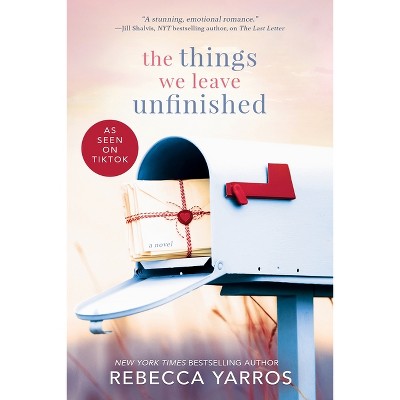


Trending Non-Fiction






